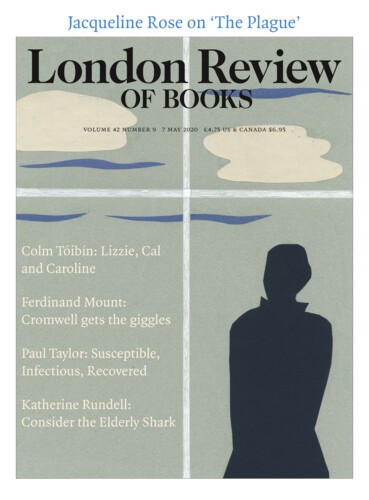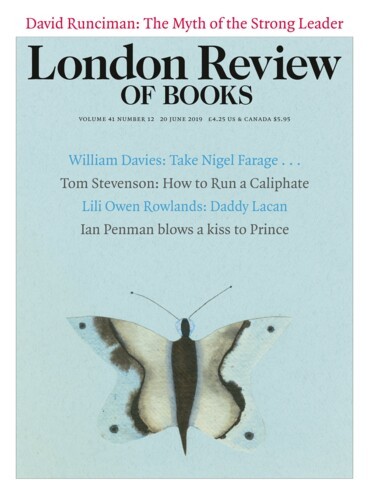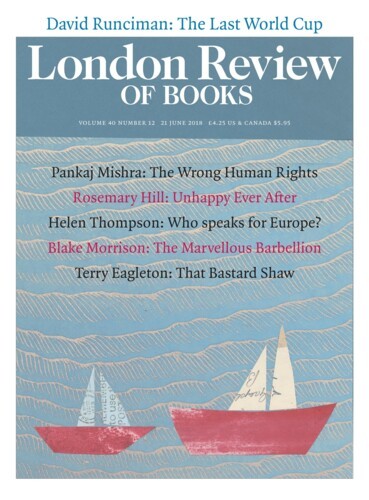The Smell of Blood: Sarah Moss
Blake Morrison, 13 August 2020
‘All day it has rained,’ goes a poem written by Alun Lewis in 1941, while he was stationed with the Royal Engineers in Hampshire, ready for war but not yet called to action. It’s a poem about being bored and being grateful for the boredom since worse is to come. ‘We talked of girls and dropping bombs on Rome.’ Beyond the humdrum detail – groundsheets,...





